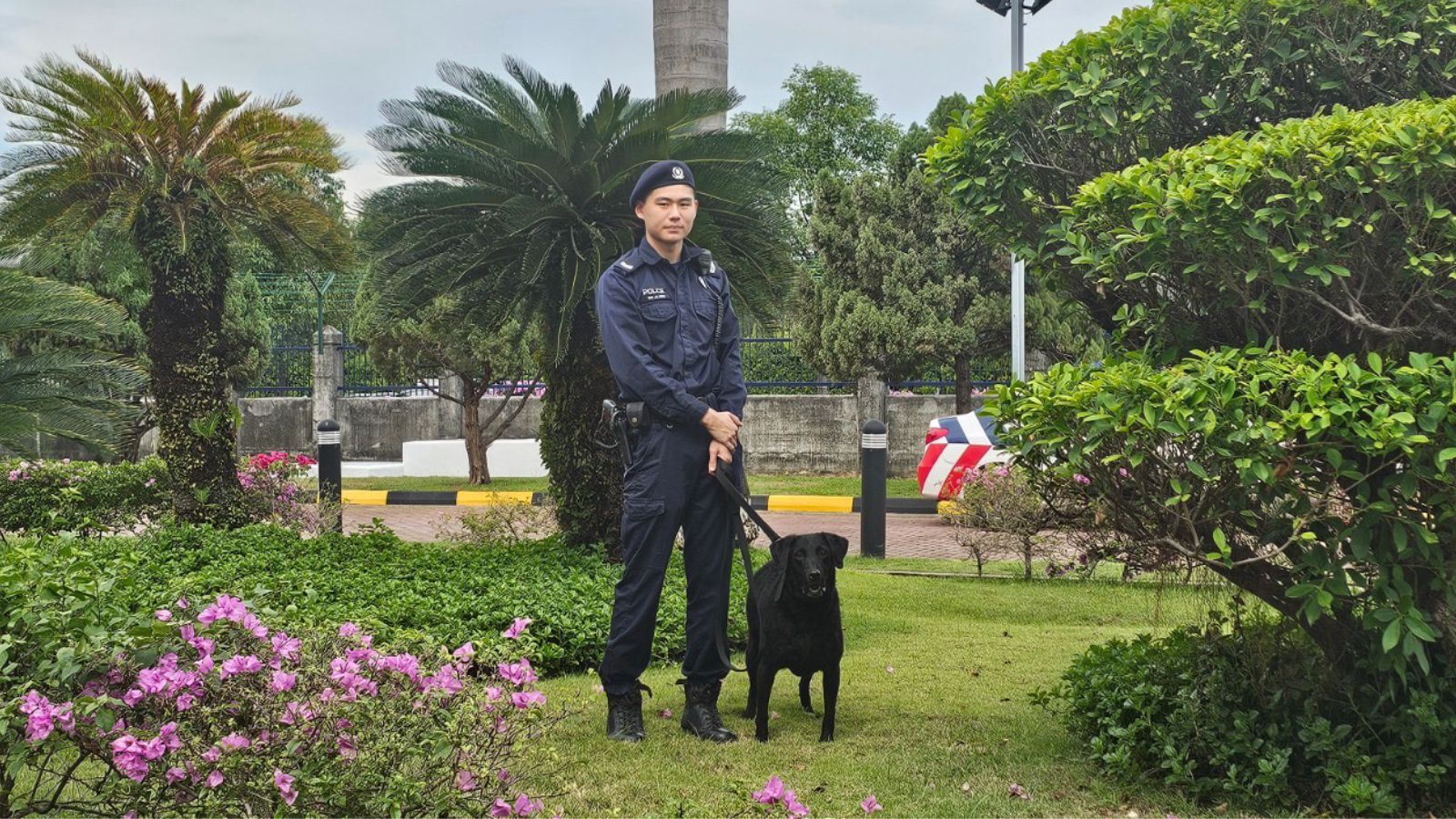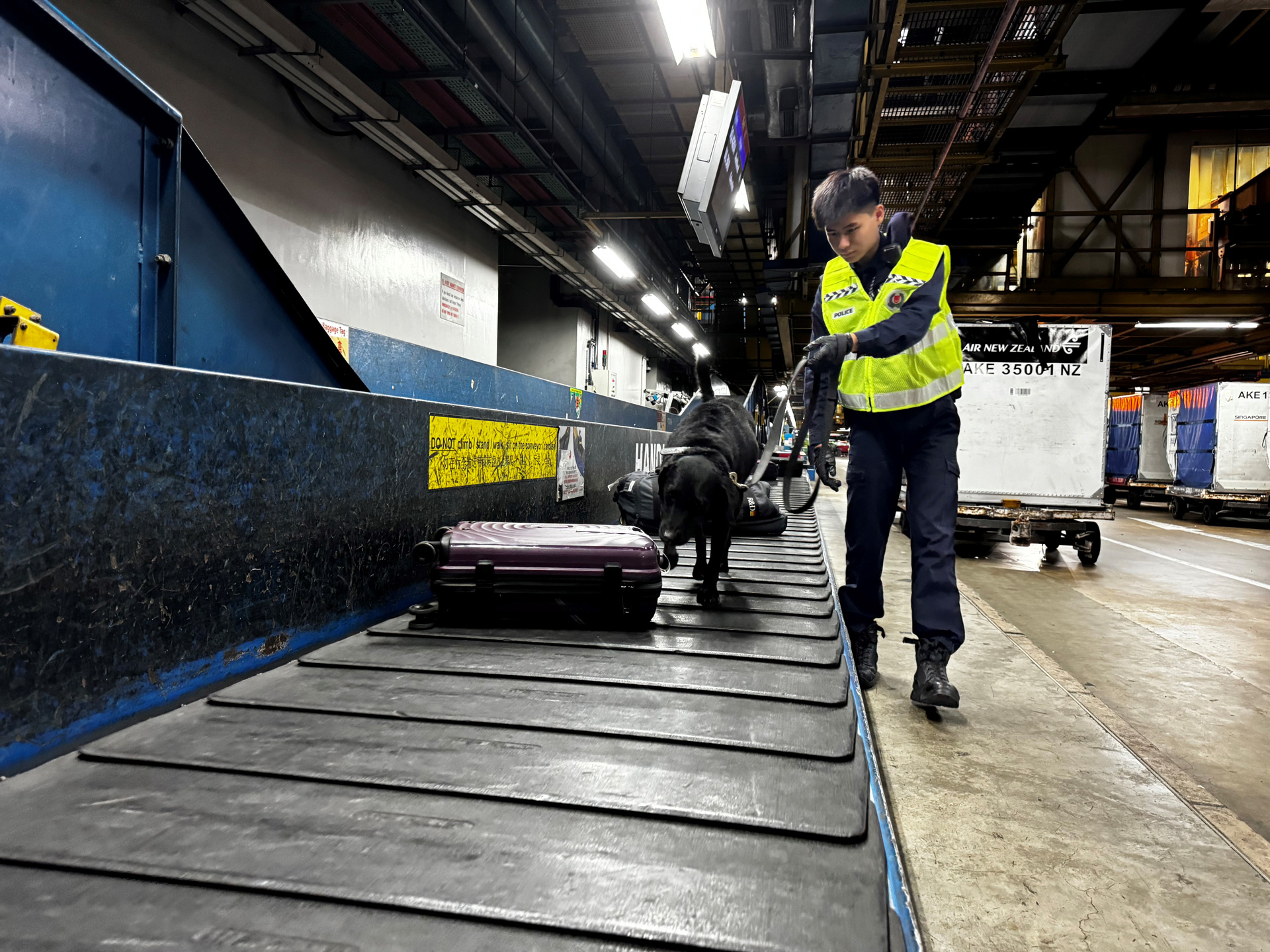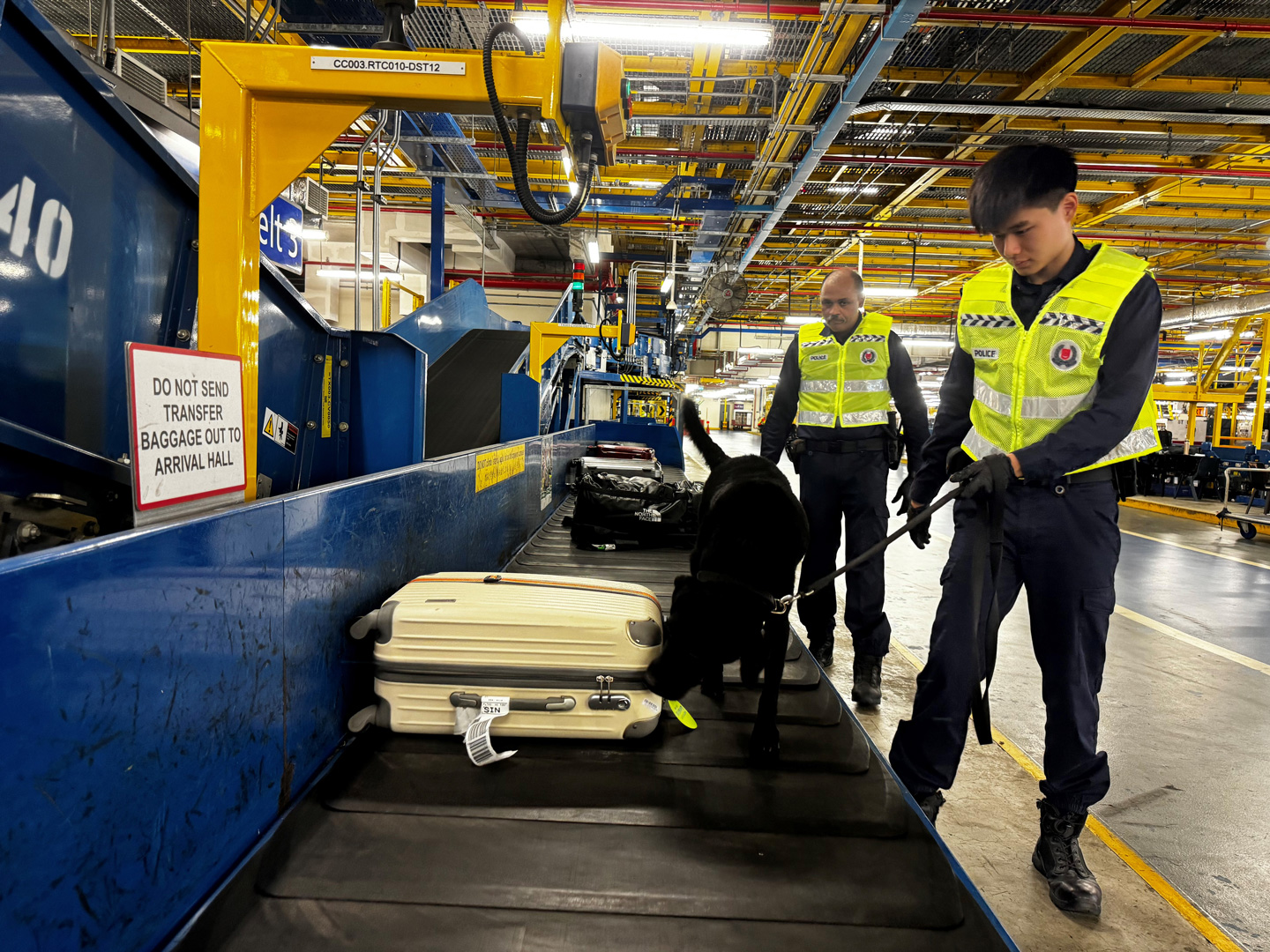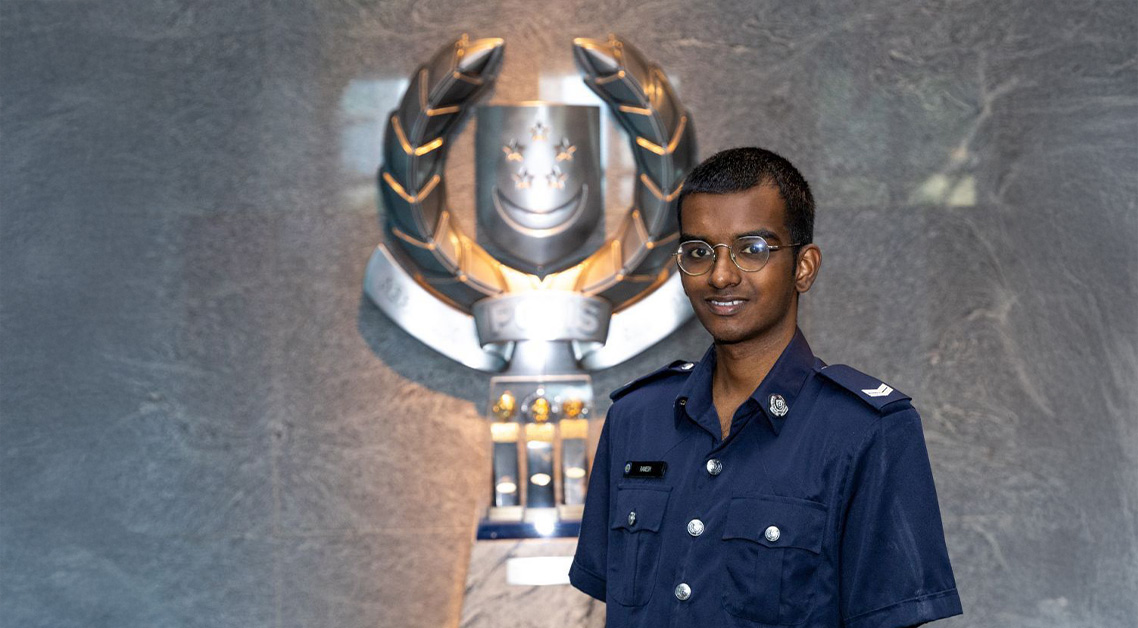
Discover the strong bond and unwavering dedication of SC/CPL Nicodemus Tan and his trusted K-9 partner, Lily, as they work tirelessly to maintain Singapore’s security.
Unlike most of his peers in the Singapore Police Force, Special Constable Corporal (SC/CPL) Nicodemus Tan Jia Hong spends about 13 hours a day with a unique partner — a gorgeous female buddy named Lily. Besides going on patrols together, Nicodemus dedicates time to play and care for her.
Sounds unusual? That’s because Lily isn’t a typical partner; she’s a K-9 Narcotic Detection Dog (NDD). A normal day for the duo includes grooming Lily and cleaning her kennel, tasks that seem mundane but are crucial for their high-stakes role in drug detection. “Dogs are generally susceptible to diseases, especially as they age. Therefore, maintaining her well-being is vital to her performance,” explains Nicodemus.
Besides brushing Lily’s fur and giving her regular baths, Nicodemus also watches out for unusual behavioural changes, which could indicate that she is ill and requires medical attention.
For someone who has never owned a pet, Nicodemus admits he was initially apprehensive about his posting to the K-9 Unit. However, any reservations quickly dissipated the moment he met Lily. “Unlike a typical Labrador with dense and flat fur, Lily’s is puffier and wavier, which I found very endearing. Also, when she looked at me with those longing eyes, I knew that she was the companion I wanted to spend my NS journey with,” he recalls.
Nicodemus was also immediately impressed by how competent the unit’s dogs were at their job. “It was just a couple of days into training and I was sceptical about a dog’s ability to find drugs. To my surprise, Lily not only detected the drugs with pinpoint accuracy, but also showed a perfect response to indicate her finding. It was a moment I’ll remember for years to come,” he says.

While a five-week training course provided the basics of canine communication, mastering the nuances of interaction with Lily required patience and observation. “As a handler, it is important to understand her likes, dislikes, and habits. This knowledge allows us to tailor our commands and encouragement effectively,” says Nicodemus. Through trial and error, he discovered the best tone for commands and learnt to interpret Lily’s body language accurately.
The cornerstone of their partnership is the strong bond Nicodemus shares with Lily. One way he achieves this is through the daily grooming sessions and the use of positive reinforcement. Nicodemus rewards Lily with playtime or treats after successful training sessions to ensure she remains eager and attentive. Positive reinforcement, he adds, is why NDDs can do what they do.
“One of the questions I get asked frequently is if K-9 dogs consume drugs during the training process so that they would be addicted and hence can sniff them out better. But that’s not the case at all,” says Nicodemus. “Contrary to popular belief, K9 dogs are neither addicted to nor interested in drugs. They are simply looking forward to playing with their favourite toy after successfully detecting drugs!”
That being said, NDD handlers like Nicodemus must also know where to draw the line and ensure that the professional relationship is not compromised. “A delicate balance must be found and maintained between companionship and authority. The key is to ensure that the dog listens to commands and is able to work effectively,” he says. “Being too soft-spoken or being too harsh could compromise on the working capabilities of the dog. At the end of the day, it is up to me to find this balance and ensure that Lily and I can be an effective team.”

During the day, the pair spends much of their time conducting rigorous search operations, from inspecting luggage at airport terminals to conducting vehicle checks. These tasks are vital in maintaining Singapore’s stringent security measures, particularly in narcotics.
“The most rewarding part of my job is knowing that our efforts contribute to upkeeping the nation’s zero-tolerance stance against drugs. It fills me with pride and purpose knowing that I am protecting the lives of Singaporeans and ensuring the sanctity of a drug-free Singapore,” he says.
The nose of a dog have up to 300 million olfactory receptors, compared to about six million in a human. This means that the animal’s sense of smell can be up to 100,000 times more acute than a human’s.
Another skill that Nicodemus has gained from his work is becoming more adaptable. He and Lily face different scenarios and challenges every day, and this has taught them how to react quickly to each situation with clarity and calmness. “Working with a dog is never predictable; this has taught me that change is the only constant and that I should approach change with an open mind,” he says.
Working with Lily has given Nicodemus the intangible reward of heart-warming memories that will last a lifetime. “I will never forget the times we spent together, the bond that we have forged, the affection she showed me and, above all, the indelible mark she has left on my life,” he says.
In fact, he is feeling melancholic about what the future holds for his trusty companion and work partner. “I will be Lily’s last handler as she will retire after I ORD. In preparation for her retirement, the K-9 Unit will arrange a health check to certify that Lily is in the pink of health for adoption,” he shares. “Hopefully, a loving family will see what I saw in her and adopt her as an addition to their family.”
Like our stories? Subscribe to our Frontline Digital newsletters now! Simply download the HomeTeamNS Mobile App and update your communication preference to ‘Receive Digital Frontline Magazine’, through the App Settings.


